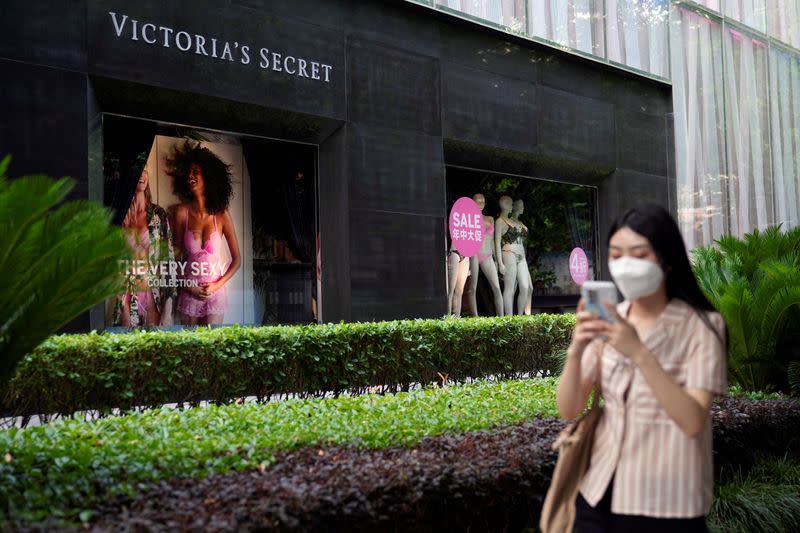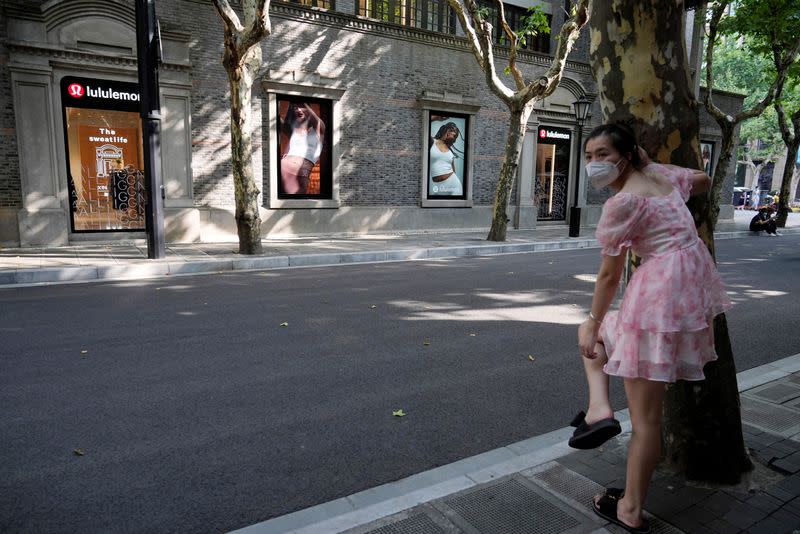Shanghai's fashion stores struggle to clear lockdown stock hangover
By Casey Hall
SHANGHAI (Reuters) -Almost a month since Shanghai lifted its strict COVID-19 lockdowns, fashion retailers are stuck with piles of unsold stock as cautious consumers stay away from the commercial hub's glitzy shopping districts.
Curbs to stop the virus in Shanghai, China's fashion capital, ground the city of 25 million to a halt in April and May, leaving clothing and beauty product displays in stores untouched and containers of imported apparel stranded at port.
The city's re-opening this month saw a flood of goods ship from warehouses to store shelves already laden with merchandise unsold during two months of lockdown. Normally around a fifth of all imported goods coming into China pass through Shanghai's port.
Days after COVID-19 curbs eased, large "sales" signs went up across Shanghai, with retailers from Lululemon to Victoria's Secret offering discounts to lure shoppers.
Even online retailers have struggled to clear a glut caused by lockdowns and supply interruptions.
"This affected us a lot," said Josh Gardner, founder and chief executive of China market e-commerce partner Kung Fu Data, which manages online stores for 10 fashion brands, including G-Star Raw.
"In April, May on (China's major e-commerce) platforms, there wasn't a t-shirt to be found, we were sold out of summer stock and so was everyone else, there was just no product," he said. "Now, everyone's just bleeding and stuck with a lot of inventory they can't move."
China is a major market for personal luxury goods companies with sales reaching $74.4 billion in 2021, according to Bain.
One consultancy estimated that sales during "618" – a major shopping event in China from May 31 to June 20 - across the main e-commerce sites, such as Tmall and JD.com, were flat year-on-year.
In the event's opening week, data from Tmall showed men's wear sales had dropped 22% and women's wear was down 4%, although activewear sales rose 26%, possibly due to an increased focus on fitness during the lockdown.
For now, some retailers are warehousing inventory and ordering less for the fourth quarter when they will try to clear existing stock through November's Singles' Day.
"For the apparel category, due to the epidemic and sluggish consumption, there is a high level of inventory backlog of spring collections," JD.com chief executive Lei Xu said following the online retailer's first quarter earnings. "As a result, many factories are considering skipping their ... summer collections."

 Yahoo Autos
Yahoo Autos 



